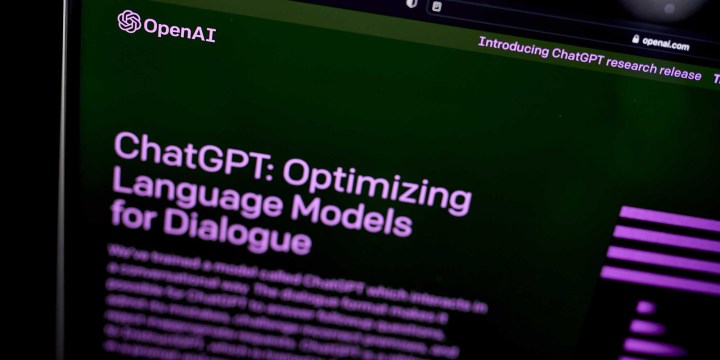Business Maverick
EU nears deal to regulate ChatGPT, other AI tech in landmark act

The European Union is nearing a deal on what is poised to become the most comprehensive regulation of artificial intelligence in the western world.
Negotiators have agreed to a set of controls for generative artificial intelligence tools such as OpenAI Inc.’s ChatGPT and Google’s Bard — the kind capable of producing content on command, people familiar with the discussions said early on Thursday.
Delegates from the European Commission, the European Parliament and 27 member countries reached the compromise in a meeting that began on Wednesday afternoon and has dragged on for hours, bringing the group closer to a formal agreement over a broader piece of legislation known as the AI Act, said the people, who asked not to be identified because the talks aren’t public.
A deal marks a critical step in clearing landmark AI policy that will — in the absence of any meaningful action by US Congress — set the tone for the regulation of generative AI tools in the developed world. The act would make the EU the first government outside of Asia to put firm guardrails on the technology.
Legislators have been working for months to finalise the language in the AI Act and get it passed before European elections in June usher in a whole new commission and parliament that could force more changes and stall efforts.
The European Commission didn’t respond to a request for comment sent outside of regular business hours.
Read More: EU Races to Reach a Deal on World’s First Major Set of AI Rules
The extensive, late-into-the-night discussions underscore how contentious the debate over regulating AI has become, dividing world leaders and tech executives alike as generative tools continue to explode in popularity. The EU — like other governments including the US and UK — has struggled to find a balance between the need to protect its own AI startups, such as France’s Mistral AI and Germany’s Aleph Alpha, against potential societal risks.
Read More: EU’s Flagship AI Rules Risk Ending Up in Limbo: Brussels Edition
That has proven to be a key sticking point in negotiations, with some countries including France and Germany opposing rules that they said would unnecessarily handicap local companies. Officials were growing increasingly confident that a deal would be reached early on Thursday, though the technical details of the act would still need to be hammered out in a series of follow-up meetings.
EU legislators had proposed a plan that would require developers of the type of AI models that underpin tools such as ChatGPT to maintain information on how their models are trained, summarise the copyrighted material used and label AI-generated content. Systems that pose “systemic risks” would have to work with the commission through an industry code of conduct. They would also have to monitor and report any incidents from the models.


















Comments - Please login in order to comment.